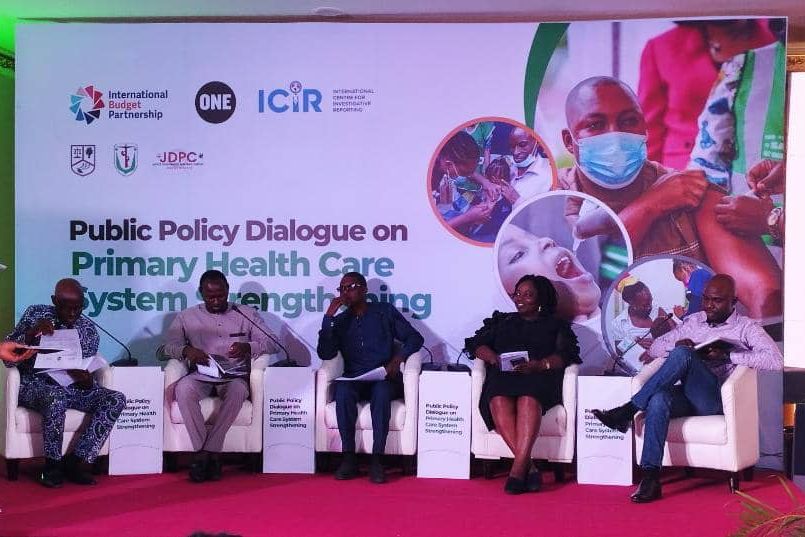 A group of Civil Society Organisations (CSOs) has decried the poor state of primary health care system in the country, despite the Basic Health Care Provision Funds (BHCPF).
A group of Civil Society Organisations (CSOs) has decried the poor state of primary health care system in the country, despite the Basic Health Care Provision Funds (BHCPF).
The CSOs expressed their displeasure during their participated in the Public Policy Dialogue on Primary Health Care System Revitalization in Nigeria, held Thursday in Abuja.
The dialogue was put together by ONE Campaign and Justice, Development and Peace Commission (JDPC); International Budget Partnership (IBP) as well as the International Centre for Investigative Reporting (ICIR).
Speaking at the event, the Editor, International centre for Investigative Reporting (ICIR), Bamas Victoria, stated that findings on the execution of the BHCPF by journalists who carried out investigations across states and geo-political zones in Nigeria cited challenges being faced across the states, which include security concerns, death of midwives, inadequate manpower and dilapidated structures.
The BHCPF was established to improve primary health care in states across the country.
Meanwhile, the funds are made available by the Federal Government to cater for daily operation costs of public health care with the aim of improving citizens access to medical services.
Also present at the event was the country Director, ONE Campaign and Justice, Development and Peace Commission (JDPC), Stanley Achonu.
Achonu noted that Nigeria health care system is beset with a challenge and consequently, requires government’s attention to revitalize it.
According to him, government must be held accountable for the funds of basic health care as it is important to monitor the utilization of the funds.
He said: “Committee setup to control the implementation of BHCPF think it is a political appointment and opportunities to access government money.
“As civil society groups, we are helping to keep an eye to institutionalize transparency and accountability mechanism in the utilization of the funds as well as delivering the expected outcome.
“Improving primary health funding is critical because Nigeria’s current primary health care system does not adequately meet the needs of its population.
“Nigeria has one of the highest rates of out-of-pocket spending (75 per cent) and one of the lowest rates of health insurance coverage (4 per cent).
“The numbers are troubling given that approximately 40 per cent of Nigerians live in poverty and in social conditions that contribute to poor health.”
Also present at the event was the Head, Civil Rights Concern (CRC), Okey Onyeka, who noted that shortage of staff was a significant challenge faced by PHCs.
Onyeka noted that states lacked the political will to contribute counterpart funds, despite the (BHCPF).
Onyeka also expressed concerns that government representatives at policy-making levels were not in line with their responsibilities.
The Executive Director, Paradigm Leadership Support Initiative (PLSI), Segun Elemo, who spoke on the decreasing staff strengths within PHCs and increasing overhead costs, noted that lack of accountability was also a challenge in the system.
Elemo therefore called for a convergence of social and statutory accountability to support structures being put in place at sub-national levels.
He however noted that accountability mechanisms were available but officials were not conversant with their responsibilities.
[ad unit=2]



